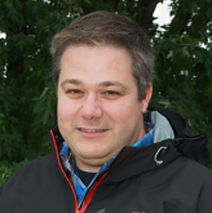 François Gros-Louis, Ph.D.
François Gros-Louis, Ph.D.
Researcher,
Centre de Recherche en Organogénèse Expérimentale de l’Université Laval/ LOEX
CHU de Québec Research Center-Université Laval
Assistant Professor,
Department of Surgery within the Faculty of Medicine of Université Laval
Chair of Research of Canada in Biomodeling and Treatment of Neurodegenerative Diseases
List of publications (external link)
A fresh look on neurodegenerative diseases and other disorders of the nervous system
Neurodegenerative diseases form a subgroup of neurological disease that usually strike adults, regardless of their socio-economic background or gender, and its prognosis is often fatal after the appearance of the first symptoms. One of the major obstacles faced by scientists aiming to develop new treatments is the lack of understanding of the biological and molecular mechanisms underlying these serious chronic illnesses.
Holding a Canadian Research Chair in bio-modeling and treatment of diseases of the brain, Dr. François Gros-Louis is a young researcher specializing in the study of neurodegenerative diseases and the use of cellular and animal models for the development of new therapies. The main objective of his research program is to develop innovative cellular and animal models to study neurodegenerative diseases caused by abnormalities in protein conformation.
Aggregation of proteins, following their partial unfolding or alternative refolding, underlies more than 20 diseases in humans called "conformational diseases", that result in cellular degeneration. Specifically, our research aims, among other things, to better understand the mechanisms of neurodegeneration associated with lateral amyotrophic sclerosis (ALS), a yet incurable disease causing specific degeneration of motor neurons and the death of the patients within 3 to 5 years after diagnosis. However, our understanding of neurodegenerative disease and the development of adequate models in the field of neuroscience is hindered by the inaccessibility of cells and nervous tissue. There are now several studies identifying physiological changes at the level of the skin in patients with ALS, Alzheimer's disease, Parkinson's disease and other neurodegenerative diseases.
Therefore, the production of reconstructed skin, in vitro, by tissue engineering, could represent a renewable source of human tissue that is quickly and easily accessible. In addition, models of reconstructed skin may further our understanding of the pathophysiological mechanisms underlying these diseases, leading to the development of innovative tools for the identification of new therapeutic targets and early diagnosis.
